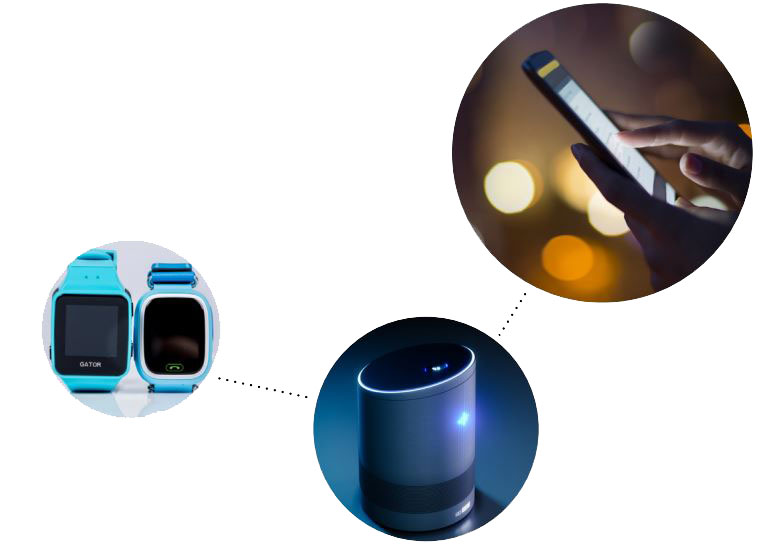Smart Products – a Boon or a Bane
We are digitally connected and wired in our daily lives. Our life is now measured by our presence in the digital space. Our life revolves around smart products and how smartly we use them. Your AC is switched on even before you enter your home, your smart phone reminds you of the next PPT presentation, your smart watch checks your daily calorie intake and your geyser remains ready with hot water on time. But the question is how trusted are our smart products and how much trust we can have on them.
The IoT (Internet of Things) as we know it is the key to smart shopping, smart transportation, smart homes, and smart healthcare. Software and hardware devices of trusted smart products are getting interconnected forming a meshed network of information, most of which is stored in the Internet. Trusted smart products help us to get digitally connected and a lot of data exchange happens through it.

As predicted by research firm IDC, by 2020 there will be more than 28 billion objects with data-exchange capabilities.
Though in many ways it has proved a major boon for our lives, it is a major security threat as well.
IoT, the acronym for The Internet of Things, refers to the physical devices connected all over the world through the internet and which is used for collecting and sharing data. By using the processors and wireless networks, it’s possible to turn anything into anything.
BENEFITS OF THE INTERNET OF THINGS FOR CONSUMERS
The Human brain is no longer the only smartest thing now. It faces stiff competition (if you swear by smart products more than your brain) from smart speakers and products that make our homes, offices and vehicles smarter. It sets the alarm, it plays music the moment we ask for it, it reads aloud the news for us and even gets us traffic updates. So you can no longer give an excuse to your boss that you have been late to office because of traffic!
On a more serious note, home security system makes it easier to monitor what is going on inside and outside, or to see and talk to visitors virtually.
For consumers of the 21st century, a smart home is one where they will come into contact with internet-enabled things. A smart healthcare system is one that will give us body signals even before we realize them. A smart school uses smart boards for making the GenZ smarter than ever. Smart products have made life simpler, and increased safety for children and the elderly. However, many of these innovations could have major implications for our personal privacy.
SECURITY AND PRIVACY
Software of trusted products if not updated on a regular basis makes it easier for hackers and risks the users’ private life. Hackers are now targeting IoT devices such as routers and webcams because of their lack of security. IoT devices are prone to virus attacks through malware across organizations.
Privacy remains a constant headache when all the sensors are collecting data. It can tell from when your day starts to when it ends; where are you going to what you are eating and when you are sleeping sensing the usage of smart devices timings.
AFFORDABILITY
Though the cost of many smart products like smart phones and smart TVs have been lowered in many countries, the cost of data is still huge which serves as a barrier to internet access.
DATA PRIVACY AND PROTECTION
A 2018 global consumer study revealed that 52% of users are more concerned about their online privacy compared to one year ago. While 43% of respondents from a different survey said they wanted to know more about the data collected about them via their connected devices and 47% worried about identity theft. Objects within a connected system may not reveal much information on its own but when collated and analysed with other information it could reveal the details of the user profile.
TRANSPARENCY
Even a random survey in office or in your locality might reveal that most consumers or users are unaware about how personal information is collected, used and disclosed. Consumers International member Deco Proteste in Portugal, carried out mystery shopping for Smart TVs in shops. They found that no pre-purchase information was available to consumers on how the devices collected and used their data. However, agreeing to the provider’s data collection policy is essential in order to use the TV.
For our comfort, we as consumers have unwittingly compromised our privacy. So it is upto us now to decide how far can we go on this.
Just like every invention, smart products too have its own pros and cons, so does Internet of Things. So think before you get wired and digitally connected.
